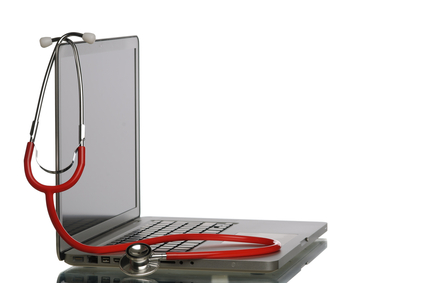
The primary concerns of the healthcare industry – budgets, wait times, patient security – are being addressed in dramatic fashion by a slew of technological innovations.
Most recently, Apple’s HealthKit software and smartwatch comprise a one-two punch for ardent fitness self-monitors. The latter is similar to established wearables like FitBits, but promises to provide more accurate data than existing products; the former connects personal fitness, nutrition and medical data to give users a comprehensive overview of their wellbeing.
Health obsessives aligned to the quantified self movement will find much to love about Apple’s new gadgetry, but more intriguing is the potential for changing behavior amongst users who may not be aware of the true state of their health. Apple Watch can, for instance, prompt users to stand up at regular intervals – a valuable service in our sedentary, office-bound lives.
As much as these tools can improve personal fitness, the biggest impact is being felt in the management of chronic diseases, which account for 75% of U.S. healthcare costs. Considering most of these diseases are driven by alterable factors such as smoking, diet and physical activity (or lack therof), the potential for modifying behaviors provided by the Apple Watch et al is huge. Everything from blood-glucose meters to blood-pressure wristbands are capable of recording highly accurate data and sending it to doctors to facilitate better communication between healthcare providers and patients.
The tech revolution in the healthcare industry isn’t all about flashy wearables, however. The humble text message has made major inroads into cutting hospital wait times and budgets. Last year, a Ponemon Institute study indicated that outdated forms of communication like pagers were costing the industry $8.3 billion annually. Clinicians wasted, on average, 45 minutes per day using outmoded devices. The upshot of the research was the suggestion that SMS could potentially cut wait times by nearly an hour. The Ponemon Institute calculated that text messaging could reduce lost hospital revenue by more than half a million dollars.
Text messaging is also tackling the security issues inherent in any large-scale electronic data storage. The Health Insurance Portability and Accountability Act (HIPAA), established to protect patient privacy, strictly governs the ways in which data can be shared. It also hobbles the provision of quality healthcare. Text message services like TigerTextPRO encrypts patient information, remaining HIPAA-compliant at the same time as providing excellent care by allowing better doctor-patient engagement.
The manifold applications of SMS include patient surveys, appointment and medication reminders, updates on medical research and information on how to treat specific conditions. The net result is a smoother, more transparent industry that compromises nothing in terms of patient security.
If prevention is the best cure when it comes to relieving an overburdened health sector, technology has proved a highly effective vaccine. It’s enabling healthcare providers to monitor large groups of people, and intervene before illnesses become acute, and therefore costly. In Baltimore, one study used phones to track the activity of drug users in order to gain insight into the common causes of relapses.
HealthKit, Apple Watch, FitBits, SMS messaging – all are playing their part in improving public health. With so much investment in this area, we can only wonder how fit our healthcare industry will look in a few more years.